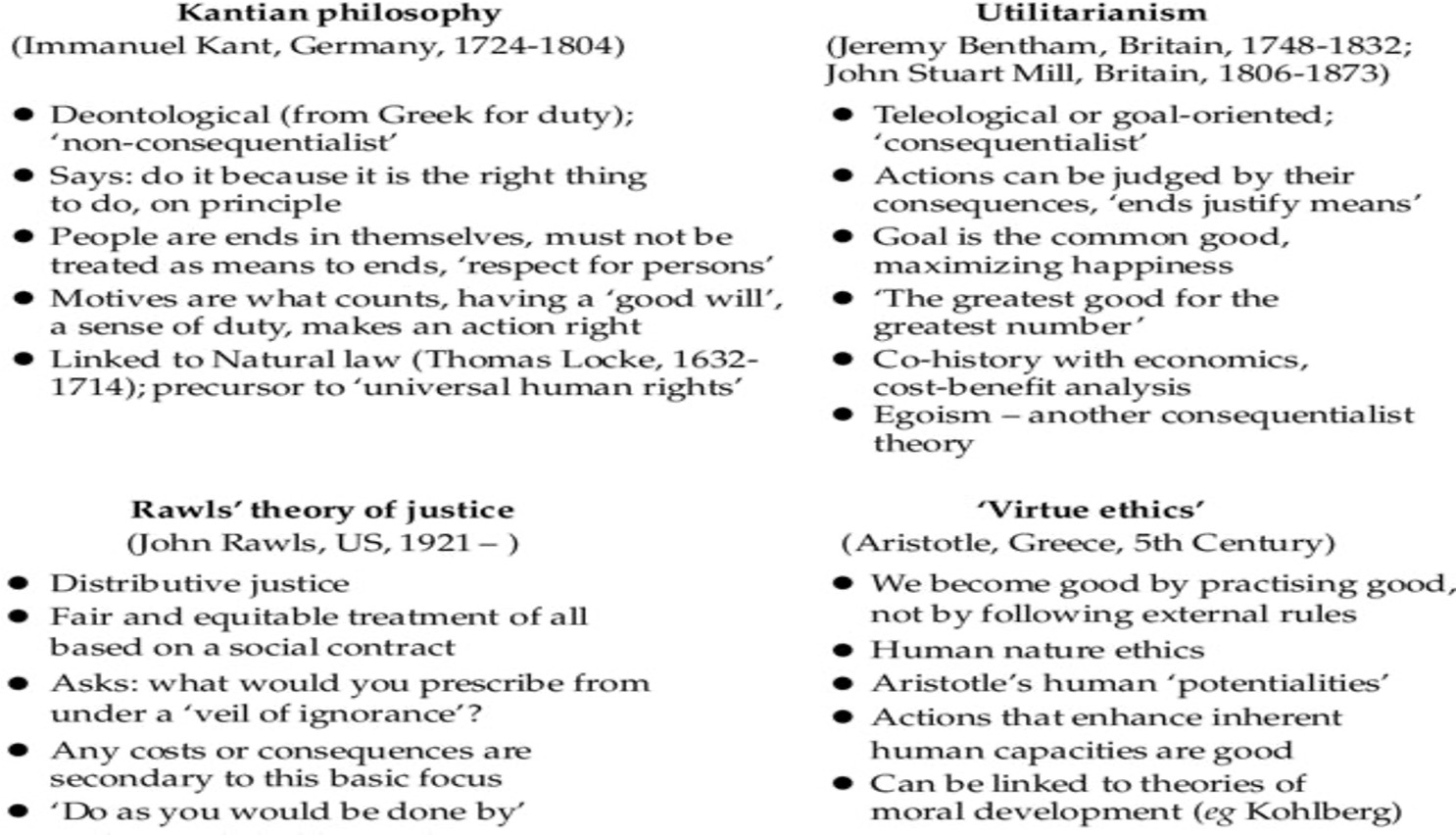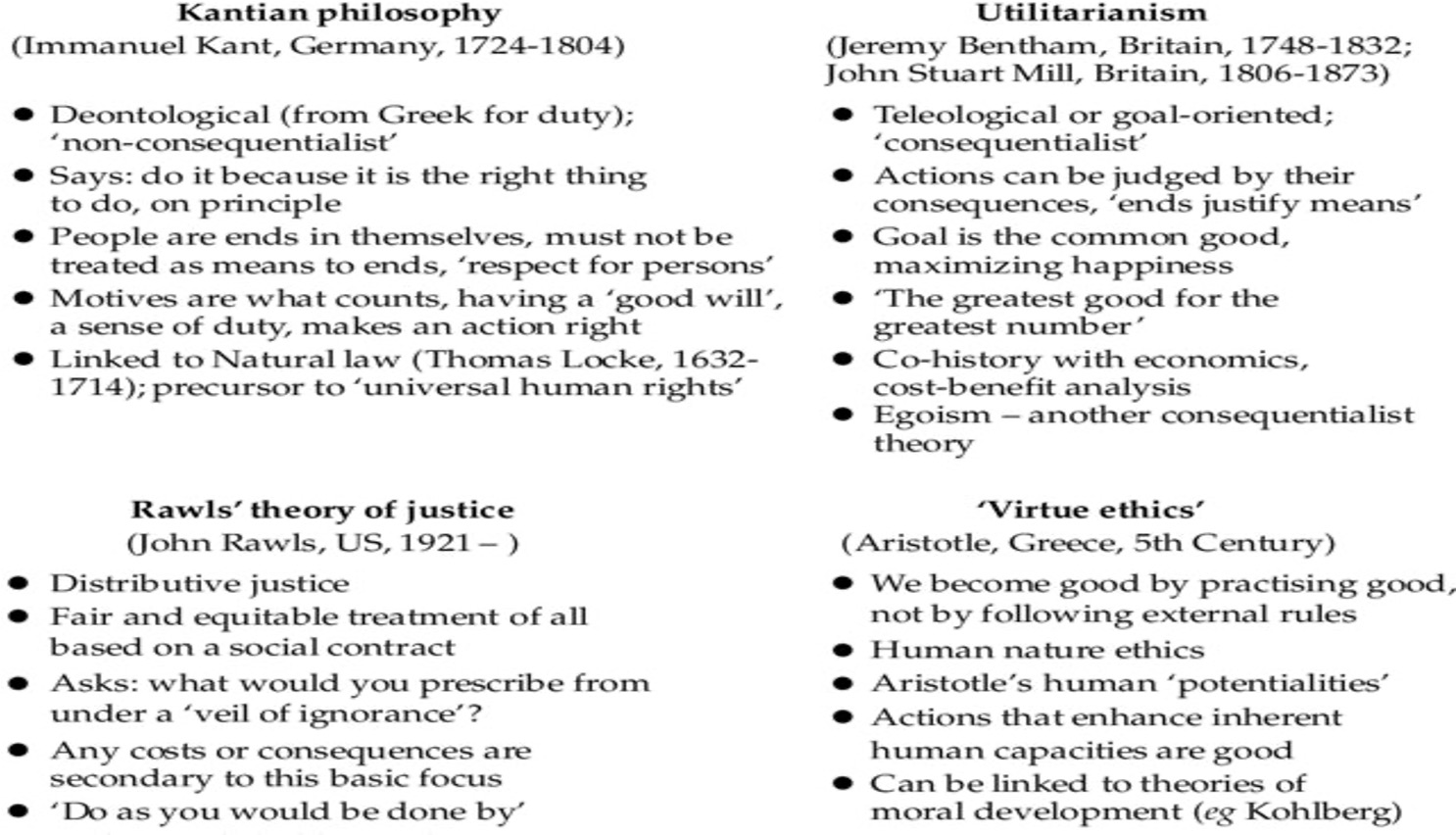Answered step by step
Verified Expert Solution
Question
1 Approved Answer
Business Law Kantian philosophy Utilitarianism (Immanuel Kant, Germany, 1724-1804) (Jeremy Bentham, Britain, 1748-1832; John Stuart Mill, Britain, 1806-1873) . Deontological (from Greek for duty); .

Business Law

Step by Step Solution
There are 3 Steps involved in it
Step: 1

Get Instant Access to Expert-Tailored Solutions
See step-by-step solutions with expert insights and AI powered tools for academic success
Step: 2

Step: 3

Ace Your Homework with AI
Get the answers you need in no time with our AI-driven, step-by-step assistance
Get Started


